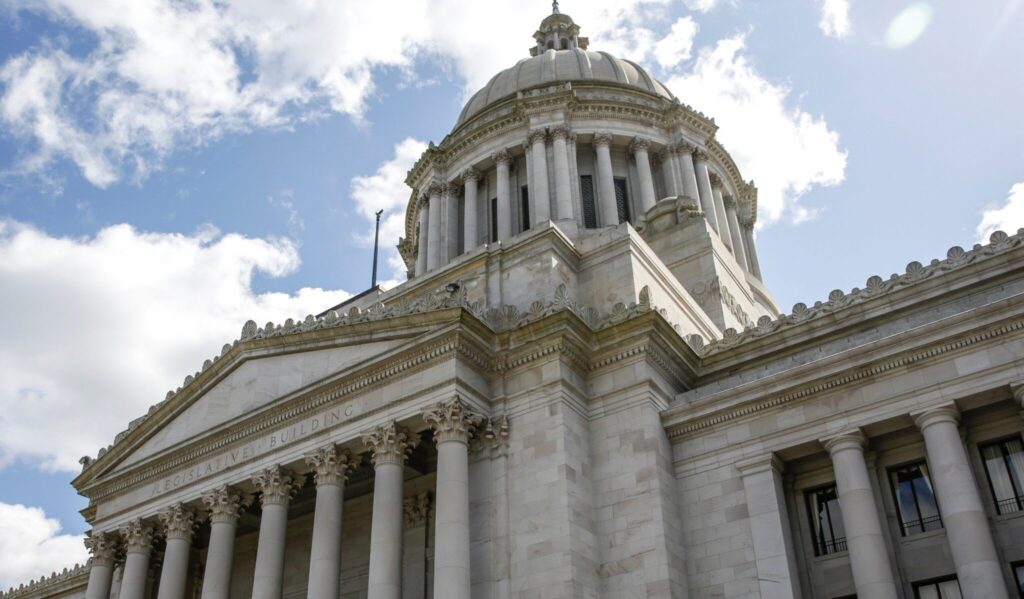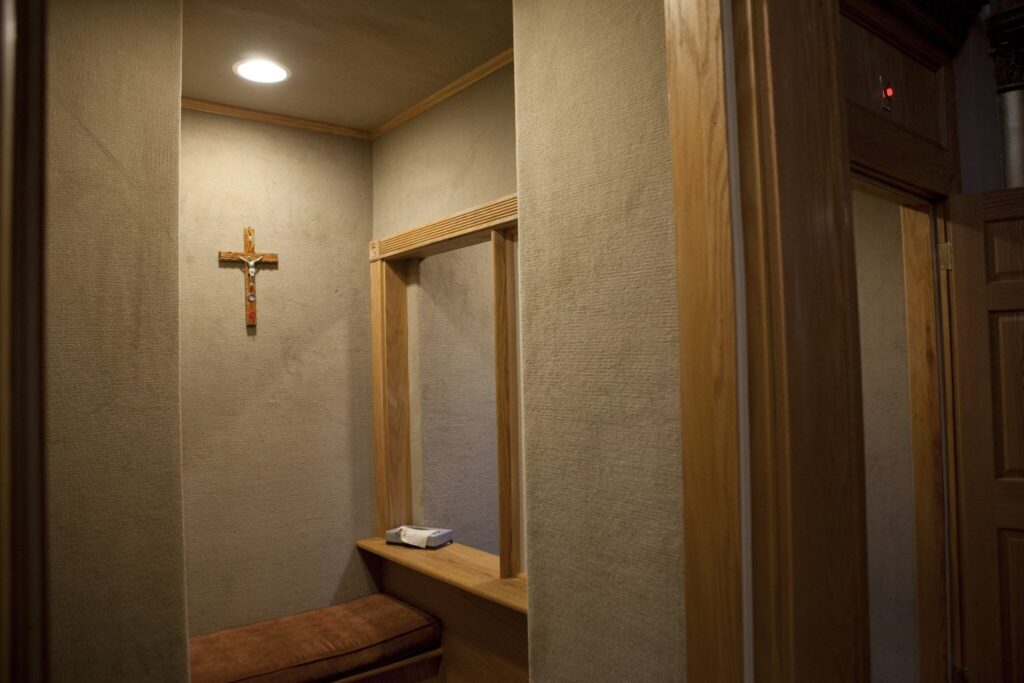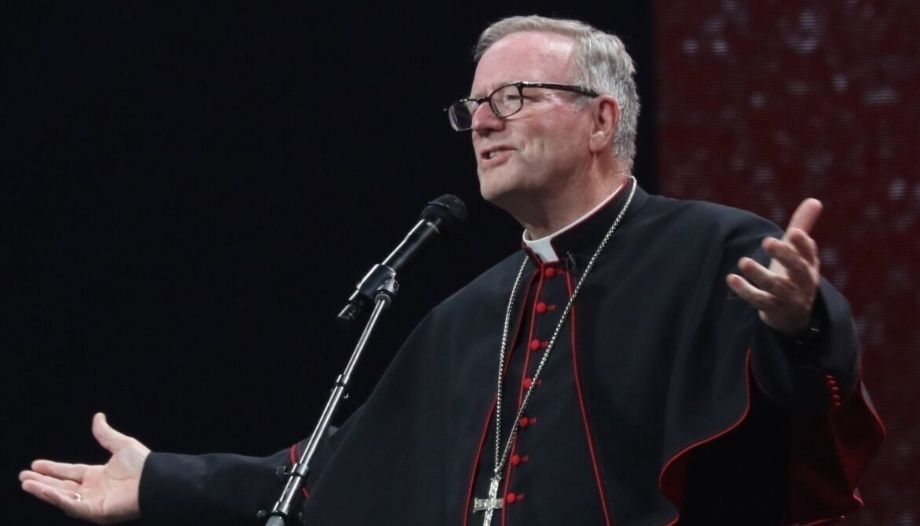- Gina Christian (OSV News)
The Washington state law that will require priests to violate the secrecy of confession to report abuse is "an egregious violation of the free exercise clause of the First Amendment." So Bishop Robert E. Barron of Winona-Rochester, Minnesota, a member of the U.S. Religious Liberty Commission, has told OSV News.
"That the state (of Washington) can interfere in this most sacred discipline of the church should alarm not only Catholics, but all Americans who revere religious freedom," he said in a statement emailed to OSV News July 7.
Writing against the governor and his administration
Bishop Barron, the founder of the media ministry or service of 'Word on Fire.filed an amicus curiae brief (note: those filed by third parties, not directly involved) on July 4. The case was initiated on May 29 by Archbishop Paul D. Etienne of Seattle and other bishops and clergy.
The action was directed against Washington Governor Bob Ferguson and his administration in connection with the recently passed mandatory whistleblower law. abuseswhich does not provide for exceptions to the confidentiality of confessions.
The Catholic bishops in Washington had supported a version of the bill that included the exception.

The law comes into force on July 27
The law, to take effect July 27, would specifically require clergy - defined as "any regularly licensed, accredited or ordained minister, priest, rabbi, imam, elder" or similar religious or spiritual leader - to report alleged abuse based on information obtained "solely as a result of privileged communication."
Under the law, other persons considered mandatory reporters in this case, such as school personnel, nurses, counselors, psychologists, and child social service workers, are not required to disclose such information if it is obtained in confidence.
Challenges to Washington state law: separate lawsuit by Orthodox church
In May, the Department of Justice (federal) opened an investigation civil rights on the development and approval of legislation.
In June, the Orthodox Church in America and several other Orthodox churches filed a separate lawsuit against Ferguson and his administration on the law. They stated that "since at least the fourth century A.D., the Christian Church has consistently forbidden priests from revealing what they hear in confession."
Orthodox: violating the secrecy of confession is a canonical crime and grave sin
"The Orthodox Church teaches today that priests have a strict religious duty to maintain absolute confidentiality of what is revealed in the sacrament of Confession," the Orthodox churches said. "Violating this obligatory religious obligation is a canonical crime and a grave sin, with serious consequences for the offending priest, including removal from the priesthood."
In the brief cited above, Bishop Barron, who as auxiliary bishop in Los Angeles had countered similar proposed legislation, said that by moving forward with the bill, "Washington barely concealed its intolerance of the categorical secrecy of confession, openly attacking this religious sacrament, and trampling on our Constitution's promise of religious neutrality."
Surprise elimination of the exception for members of the clergy
Monsignor Barron has said that the law "is manifestly based on a lack of respect for the secrecy of confession," and is at odds with a ""venerable tradition" of honoring clergy-penitent privilege, which has been widely upheld by the nation's courts.
Specifically, Bishop Barron added, "Washington's reporting requirement for supervisors generally exempts communications covered by Washington's evidentiary privileges, including spousal, attorney-client and clergy-penitent privileges." However, "SB 5375 (Washington law) surprisingly eliminates this exception only for 'members of the clergy.'" (Note: Seattle, the state's principal city, had 755,000 inhabitants in 2023).
The case of the Colorado baker
In his report, Bishop Barron quoted extensively from the case brought by Colorado baker Jack Phillips, a devout Christian whose right to refuse a wedding cake order for a same-sex couple was ultimately upheld by the U.S. Supreme Court for reasons of freedom of religion.
Bishop Barron explains sacramental stealth
The bishop noted that "few religious practices are more misunderstood than the sacred secret of confession in the Catholic Church."
Confession, part of the sacrament of Reconciliation, was instituted by Jesus Christ and given to the apostles. It allows "a sinner" access to "the healing and forgiving grace of Christ", with the priest "operating in the very person of Christ". Thus. "the penitent is speaking and hearing from the Lord himself," Bishop Barron wrote.
"Therefore, absolutely nothing must stand in the way of a sinner seeking this source of grace," Bishop Barron said in his report. "This gives rise to the indispensable importance of secrecy. If a penitent is aware that the priest could (much less should) share with others what was given in the most sacred confidence, he or she would be reluctant to approach Confession."

"The secret of confession is inviolable."
Canon Law, the principal legal code of the church, holds that "the sacramental secret" of the confessional is "inviolable." And therefore, "it is absolutely forbidden for a confessor to betray a penitent in any way by words or in any manner and for any reason whatsoever."
Even when there is no danger of such a revelation, canon law forbids a confessor to "make full use of the knowledge gained from confession to the detriment of the penitent."
Canon law: historical clashes with the sacramental seal
In 2019, the Vatican's Apostolic Penitentiary issued a note on the importance of the internal forum and the inviolability of the sacramental seal.
The note affirmed that the "inviolable secrecy of Confession comes directly from revealed divine law and is rooted in the very nature of the Sacrament, to the point of not admitting any exception in the ecclesial sphere, much less in the civil sphere".
As a result, any civil legislation that seeks to repeal clergy-penitent protections faces a head-on collision with canon law, said Father John Paul Kimesassociate professor at Notre Dame Law School, to OSV News earlier this year.
P. Kimes: the secret belongs to the sacrament
Father Kimes, who is also the Raymond de Peñafort Fellow in Canon Law at Notre Dame's Nicola Center for Ethics and Culture, added that civil law would assign the privilege to one of the parties - historically, the penitent who has been accused." However, "in canon law, the secret (of confession) belongs to no one," neither the priest nor the penitent, Father Kimes said. "It belongs to the sacrament."
As a result, "in the end, it is an irresolvable conflict between civil law and canon law," said Father Kimes.
The confrontation has a long history, with the first U.S. civil case to address the issue, People v. Philips, dating back to 1813, he adds. In that case, Father Anthony Kohlmann, who had been subpoenaed by a grand jury, refused to break the secrecy of the confessional by testifying against defendant Daniel Philips. The latter indicated that he had spoken to the priest about receiving stolen goods.
Constitutional guarantees would be violated
The then mayor of New York City, DeWitt Clinton, who presided over the court of general sessions, ruled that "it is essential to the free exercise of a religion that its ordinances be administered, that its ceremonies, as well as its essential elements, must be protected."
Clinton emphasized that condemnation of such disclosures would violate the constitutional guarantees of religious freedom, stating that "secrecy is the essence of penance". To compel priests to reveal the revelations of penitents was, in essence, "to declare that there will be no penance." And if such measures were permitted, "this important branch of the Roman Catholic religion would thus be annihilated."
————–
Gina Christian is a multimedia reporter for OSV News.
This article is a translation of the original article from OSV News, which you can view at here.







